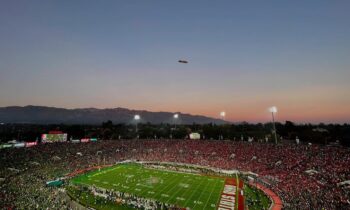
At a Glance The 2026 Winter Olympic
The 2026 Winter Olympics are set to be an extraordinary event, showcasing the pinnacle of winter sports in one of the most beautiful regions of the world. Scheduled to take place in Milan and Cortina d’Ampezzo, Italy, this edition of the Winter Games promises thrilling competitions, stunning landscapes, and rich cultural experiences. In this blog, we will explore the history, significance, preparations, and anticipated impact of the 2026 Winter Olympics.
The Legacy of the Winter Olympics
A Brief History
The Winter Olympics began in 1924, with the first Games held in Chamonix, France. Since then, they have evolved into a major international sporting event held every four years, featuring a wide array of winter sports.
The Evolution of the Games
From their humble beginnings, the Winter Olympics have expanded to include numerous sports such as skiing, ice hockey, figure skating, and snowboarding. Each edition of the Games has contributed unique stories and unforgettable moments in sports history.
Previous Winter Olympics
Before the 2026 Winter Olympics, several cities have hosted the Games, including Sochi, Pyeongchang, and Vancouver. Each city brought its own flavor and challenges, shaping the narrative of the Winter Olympics.
The 2026 Winter Olympics Host Cities
Milan: A City of Culture and Fashion
Milan, known for its rich cultural heritage and vibrant fashion scene, will play a central role in the 2026 Winter Olympics.
Key Venues in Milan
- Mediolanum Forum: This arena will host ice hockey events, providing a modern facility for fans and athletes alike.
- Piazza del Duomo: The iconic square will serve as a hub for celebrations and cultural events during the Games.
Cortina d’Ampezzo: The Queen of the Dolomites
Cortina d’Ampezzo, a picturesque alpine town, boasts breathtaking landscapes and a legacy of hosting winter sports events.
Key Venues in Cortina
- Olympia delle Tofane: A renowned ski area that will host alpine skiing events, offering challenging courses and stunning views.
- Cortina’s Ice Stadium: This venue will host figure skating and short track speed skating competitions, showcasing the elegance of winter sports.
Key Sports and Events at the 2026 Winter Olympics
Traditional Winter Sports
The 2026 Winter Olympics will feature a wide range of traditional winter sports that have captivated audiences for decades.
Alpine Skiing
Alpine skiing is one of the most popular events, featuring thrilling downhill races and technical slaloms. Athletes will compete for gold medals on the challenging slopes of Cortina d’Ampezzo.
Figure Skating
Figure skating combines athleticism and artistry, with athletes competing in singles, pairs, and ice dance categories. The event will take place in Milan’s Ice Stadium, providing a stunning backdrop for performances.
New and Exciting Events
The Olympics continue to evolve, with new sports and events being introduced to engage younger audiences.
Freestyle Skiing and Snowboarding
Freestyle skiing and snowboarding have gained immense popularity, featuring events like slopestyle, halfpipe, and big air. These visually spectacular competitions will showcase the skills of young athletes.
Mixed Team Events
The 2026 Winter Olympics will emphasize mixed team events, promoting gender equality and inclusivity in sports. Events like mixed team ski jumping and mixed relay in short track speed skating will make their debut.
Economic Impact of the 2026 Winter Olympics
Financial Opportunities
Hosting the Winter Olympics presents significant economic benefits for the host cities and the surrounding regions.
Job Creation
The Games are expected to create thousands of jobs in various sectors, including hospitality, construction, and event management. This job creation will provide a substantial boost to the local economy.
Boosting Tourism
The influx of visitors during the Olympics will have a positive impact on tourism, benefiting hotels, restaurants, and local attractions.
Infrastructure Development
The 2026 Winter Olympics will also lead to significant infrastructure improvements.
Transportation Upgrades
Both Milan and Cortina d’Ampezzo are investing in transportation upgrades, including public transit systems and road improvements, to enhance accessibility for athletes and spectators.
Sustainable Practices
The organizing committee is committed to sustainability, implementing green initiatives such as energy-efficient venues and environmentally friendly transportation options.
Cultural Significance of the 2026 Winter Olympics
Celebrating Diversity
The Winter Olympics are a melting pot of cultures, bringing together athletes and spectators from around the world.
Cultural Exchange
The Games provide an opportunity for cultural exchange, as athletes showcase their traditions and heritage, fostering understanding and unity among nations.
Community Engagement
Local communities will have the chance to participate in the Olympics through cultural programs, volunteer initiatives, and outreach activities.
The Olympic Spirit
The Olympic spirit is characterized by ideals of excellence, friendship, and respect, fostering camaraderie among athletes and nations.
Preparing for the 2026 Winter Olympics
The Role of the Organizing Committee
The organizing committee is responsible for overseeing the planning and execution of the Games.
Collaboration with Stakeholders
The committee works closely with local government, businesses, and community organizations to ensure a successful event.
Marketing and Promotion
Effective marketing strategies are being developed to promote the Games and engage local communities, particularly among younger audiences.
Training and Preparation for Athletes
As the Games approach, athletes worldwide are in rigorous training regimens to prepare for the competition.
Olympic Trials
Athletes will compete in national trials to secure their spots in the Olympics, showcasing their skills and determination.
Mental and Physical Preparation
Athletes are focusing on both physical training and mental conditioning, recognizing the importance of psychological resilience in high-stakes competition.
The Future of the Winter Olympics
Innovations in Technology
Advancements in technology are transforming how the Olympics are experienced by athletes and spectators alike.
Enhanced Viewing Experiences
Virtual reality and augmented reality technologies will offer immersive viewing experiences, allowing fans to feel more connected to the events.
Data and Analytics
The use of data analytics will help athletes and coaches optimize performance, providing insights into training regimens and competition strategies.
Legacy Beyond the Games
The long-term impact of the 2026 Winter Olympics will extend far beyond the event itself.
Community Development
The infrastructure improvements and community engagement initiatives will leave a lasting legacy for Milan and Cortina d’Ampezzo, benefiting residents for years to come.
Inspiring Future Generations
The Games will inspire young athletes and promote interest in winter sports, encouraging physical activity and active lifestyles.
Conclusion
The 2026 Winter Olympics in Milan and Cortina d’Ampezzo are set to be a momentous occasion that combines athletic excellence, cultural celebration, and community engagement. As the world prepares for this extraordinary event, the Games will showcase the spirit of competition and unity that defines the Olympics.
With a focus on sustainability, inclusivity, and innovation, the 2026 Winter Olympics will not only celebrate the achievements of athletes but also leave a profound impact on the host cities and the global community. As we look forward to this exciting event, the anticipation for the 2026 Winter Olympics continues to grow, heralding a new era in the world of winter sports.



